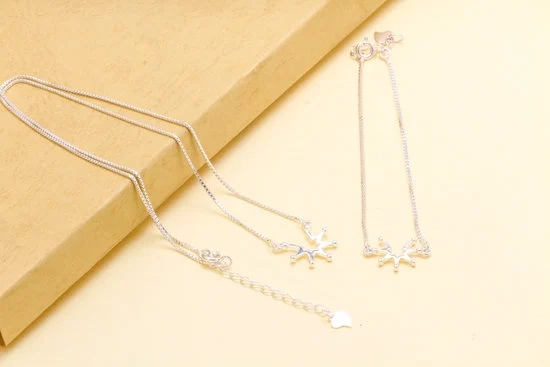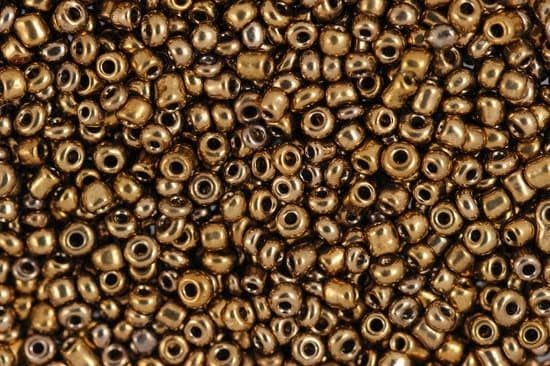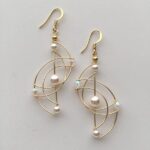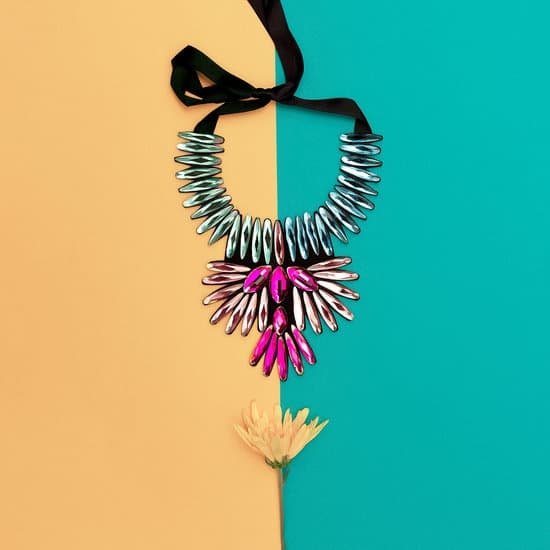Jewelry holds a special place in our hearts, whether it’s an heirloom passed down through generations or a cherished piece that represents a milestone in our lives. However, over time, jewelry can lose its luster and shine due to everyday wear and exposure to elements like dirt, oils, and environmental pollutants.
That’s where the importance of regular jewelry cleaning comes into play. By keeping your jewelry clean, you not only maintain its beauty and sparkle but also preserve its value.
Cleaning your jewelry regularly is essential for several reasons. Firstly, it helps to remove built-up dirt and grime that can dull the appearance of gemstones and precious metals. You’ll be amazed at how even a simple cleaning can restore the brilliance of your worn-out pieces.
Secondly, regular cleaning prevents the accumulation of oils and other substances that can damage the surface of your jewelry over time. Lastly, clean jewelry simply looks more presentable and polished, making you feel confident every time you wear it.
Fortunately, there are various methods available for cleaning jewelry depending on the type of piece and materials used. In this article, we will explore different techniques for effectively cleaning your beloved jewels.
We’ll discuss common household cleaners that work wonders without breaking the bank as well as professional services that offer specialized techniques for more delicate pieces or deep-cleaning needs. Additionally, we’ll delve into DIY homemade solutions made from natural ingredients and provide tips on storing your jewelry to maintain its cleanliness.
Remember, finding the best cleaning method for your jewelry often involves trial and error. What works for one piece may not work for another, so don’t be afraid to experiment with different techniques until you find what works best for you. So let’s dive in and discover how to bring back the brilliance to our favorite accessories.
Common Household Cleaners for Jewelry
When it comes to cleaning your jewelry, you don’t always need to invest in expensive specialized cleaners. Often, common household items can effectively remove dirt and grime from your precious pieces. Here are some easily accessible household cleaners that can help restore the beauty of your jewelry:
- Dish Soap: One of the most common and effective household cleaners for jewelry is dish soap. Mix a few drops of mild dish soap with warm water in a bowl or sink. Place your jewelry in the solution and let it soak for a few minutes.
Gently scrub each piece with a soft toothbrush or cloth to remove dirt and debris, paying extra attention to crevices and settings. Rinse thoroughly with clean water and pat dry with a soft cloth. - Baking Soda: Another versatile household cleaner that can work wonders on your jewelry is baking soda. Create a paste by mixing baking soda with water until you achieve a thick consistency. Apply the paste to your jewelry using a soft cloth or toothbrush, gently rubbing it over the surface of each piece. Rinse off the paste with warm water, ensuring that no residue remains, and dry with a soft cloth.
- 3.White Vinegar: Vinegar’s acetic acid makes it an effective cleaner for removing grime and tarnish from metal jewelry pieces such as silver or gold. Combine equal parts white vinegar and water in a bowl and let your jewelry soak for 10-15 minutes. Carefully brush away any remaining dirt or tarnish using a soft toothbrush or cloth. Rinse well with water, making sure all traces of vinegar are removed, then dry thoroughly.
While these common household cleaners can be highly effective in restoring your jewelry’s shine, it is essential to exercise caution when using them on certain delicate gemstones or metals that may be more sensitive to harsh chemicals. In those cases, it may be best to opt for alternative cleaning methods or seek professional cleaning services.
The Power of Ultrasonic Cleaners
Ultrasonic cleaners are powerful devices that utilize sound waves to deep clean jewelry and remove stubborn dirt and grime. They consist of a tank filled with a cleaning solution and a transducer that generates high-frequency sound waves. When the sound waves travel through the cleaning solution, they create tiny bubbles that implode, resulting in a gentle yet effective scrubbing action. This process is known as cavitation.
One of the main advantages of using an ultrasonic cleaner is its ability to clean jewelry thoroughly in hard-to-reach areas. The microscopic bubbles created by the sound waves can penetrate into tiny crevices and intricate designs, ensuring that every part of the jewelry gets cleaned. This makes ultrasonic cleaners particularly useful for pieces with complex settings or chains with multiple links.
Using an ultrasonic cleaner is relatively simple. Start by filling the tank with a suitable cleaning solution recommended by the manufacturer. Place your jewelry inside a mesh basket or tray to prevent damage or loss during the cleaning process. Submerge it into the solution, ensuring that it is completely covered. Turn on the device and let it run for the recommended time, usually around 3-5 minutes.
It’s important to note that while ultrasonic cleaners are highly effective at removing dirt and grime, they may not be suitable for all types of jewelry. Delicate gemstones like emeralds or opals, as well as pearls, should not be cleaned in an ultrasonic cleaner as they can be easily damaged by vibrations or heat generated during the process. Additionally, certain specialty finishes on metals or protective coatings on gemstones may also get damaged.
Delicate Jewelry Cleaning Techniques
When it comes to cleaning delicate jewelry pieces like pearls, opals, or emeralds, extra caution is required to avoid causing damage. These gemstones can be sensitive to certain cleaning agents and harsh abrasives. Here are some tips and tricks for safely cleaning your delicate jewelry without compromising its beauty:
- Gentle Soaking: Fill a bowl with lukewarm water and add a few drops of mild dish soap. Place your delicate jewelry in the bowl and let it soak for a few minutes. Gently swish the jewelry around in the soapy water to remove any dirt or oils. Avoid using hot water as it may damage these gemstones.
- Soft Brushing: After soaking, use a soft-bristled toothbrush or a clean, soft cloth to gently scrub the jewelry. Be extremely gentle as excessive pressure can cause scratches on the surface of the gems or damage any settings.
- Drying: Once you’ve finished cleaning, rinse the jewelry under lukewarm water to remove any remaining soap residue. Pat dry with a soft cloth and let it air dry completely before storing or wearing again.
Remember that certain delicate gemstones may require specific care instructions due to their unique properties:
- Pearls: Pearls are porous and should not be soaked in water or cleaned with harsh chemicals. Instead, wipe them gently with a soft cloth dampened with water and mild soap.
- Opals: Opals are prone to cracking when exposed to sudden temperature changes or rapid drying. Clean them using a damp cloth without any cleaning agents.
- Emeralds: Emeralds are fragile stones that should not be exposed to heat, ultrasonic cleaners, or strong detergents. Clean them by softly rubbing them with a microfiber cloth.
It’s important to note that if you’re unsure about how to clean your delicate jewelry properly, seek advice from a professional jeweler who specializes in cleaning and caring for these specific gemstones. They can provide guidance tailored to your jewelry‘s unique needs, ensuring that it remains beautiful and protected for years to come.
Professional Jewelry Cleaning Services
When it comes to cleaning your jewelry, sometimes it’s best to leave it to the professionals. Professional jewelry cleaning services offer a range of benefits that can help keep your precious pieces looking their best. From specialized techniques to state-of-the-art equipment, here are some reasons why you might consider choosing a professional service for your jewelry cleaning needs.
Specialized Techniques and Equipment
One of the advantages of professional jewelry cleaning services is access to specialized techniques and equipment. These services are equipped with the knowledge and tools necessary to clean various types of jewelry safely and effectively. They understand the unique properties of different metals and gemstones, allowing them to tailor their cleaning methods accordingly.
For example, delicate stones like pearls or opals require extra care during the cleaning process due to their fragile nature. A professional jeweler will have experience in handling these types of gemstones without causing any damage. By entrusting your jewelry to experts, you can have peace of mind knowing that it will be treated with the utmost care.
Deep Cleaning Capabilities
While household cleaners may work well for day-to-day maintenance, they may not be able to remove stubborn dirt and grime completely. Professional jewelry cleaning services often use ultrasonic cleaners, which harness the power of sound waves to deep clean your pieces.
Ultrasonic cleaners create microscopic bubbles in a liquid solution that implode upon contact with the jewelry item being cleaned. This process creates gentle vibrations that reach into even the tiniest crevices, dislodging dirt and grime particles effectively. The result is a thorough clean that restores your jewelry’s sparkle and shine.
Preservation and Restoration Services
In addition to regular cleaning, professional services may also offer preservation and restoration services for your precious pieces. Over time, jewelry can become worn or damaged due to everyday wear or accidents. Professional jewelers have the expertise to repair broken clasps, fix loose gemstones, restring pearls, and more.
Moreover, they can provide advice on how to properly care for and store your jewelry to prevent further damage. By taking advantage of these services, you can prolong the lifespan of your jewelry and ensure its continued beauty.
Homemade Jewelry Cleaning Solutions
Cleaning your jewelry regularly is essential for maintaining its beauty and value. While there are various professional cleaning services available, you can also try homemade cleaning solutions using natural ingredients. These DIY recipes are not only cost-effective but also environmentally friendly.
One popular homemade jewelry cleaning solution involves using vinegar and baking soda. This combination is effective for removing dirt and tarnish from metal jewelry. To create this solution, mix equal parts white vinegar and baking soda to form a paste. Gently rub the paste onto the jewelry using a soft cloth or toothbrush. Rinse the jewelry with warm water and dry it thoroughly.
Another option is to use lemon juice mixed with dish soap and water. Lemon juice has natural cleaning properties that can help remove grime from gemstones and metals. Mix a few drops of lemon juice with a small amount of dish soap in a bowl of warm water.
Soak the jewelry in the mixture for about 10-15 minutes. Use a soft brush to scrub away any remaining dirt, then rinse the jewelry with water and pat it dry with a clean cloth.
For delicate gems like pearls or opals, it’s important to use gentle cleaning techniques to avoid causing damage. Create a mild detergent solution by mixing dish soap with warm water in a bowl. Place the delicate jewelry in the solution, gently swirl it around, then remove it and rinse under running water. Pat dry with a soft cloth to prevent any moisture from damaging the pearls or opals.
By utilizing these homemade cleaning solutions, you can keep your jewelry looking clean and dazzling without relying on harsh chemicals or expensive professional services.
| Homemade Cleaning Solution | Ingredients | Instructions |
|---|---|---|
| Vinegar and Baking Soda Solution | – Equal parts white vinegar and baking soda | – Mix vinegar and baking soda to form a paste
|
| Lemon Juice and Dish Soap Solution | – Lemon juice
| – Mix a few drops of lemon juice, dish soap, and warm water in a bowl
|
| Mild Detergent Solution for Delicate Gems | – Mild dish soap
| – Mix mild dish soap with warm water in a bowl
|
The Science Behind Jewelry Cleaning
One might wonder why certain cleaning agents work better on specific metals or gemstones, and the answer lies in the science behind jewelry cleaning. The chemical reactions that occur when jewelry is cleaned can vary depending on the metal type and gemstone composition. Understanding these reactions can help individuals choose the most effective cleaning method for their precious pieces.
Different metals react differently to cleaning agents due to their varying chemical properties. For example, gold is a relatively inert metal that does not easily react with other substances. As a result, it can be safely cleaned using various methods without much risk of damage. On the other hand, silver is more prone to tarnishing due to oxidation and may require specific cleaning products that target tarnish removal.
Gemstones also have unique compositions that affect how they react to different cleaning solutions. For instance, diamonds are composed of carbon, which makes them highly resistant to most chemicals. However, softer gemstones like pearls or opals require more gentle care as they can easily be damaged by harsh cleaners or excessive heat.
| Metal | Chemical Properties | Recommended Cleaning Method |
|---|---|---|
| Gold | Inert; does not easily react with other substances | Mild soapy water or commercial jewelry cleaner |
| Silver | Prone to tarnishing; reacts with sulfur compounds in air | Tarnish removal products specifically designed for silver |
| Platinum | Durable and resistant to corrosion | Mainly requires polishing rather than extensive chemical cleaning |
In addition to metal and gemstone composition, understanding the basic principles of chemistry can also guide individuals in choosing cleaning agents. For example, acidic solutions like vinegar or lemon juice can be effective in removing tarnish from silver due to their ability to dissolve the oxidation. However, these acidic cleaners should be avoided for gemstones that are sensitive to acid, such as pearls or opals.
On the other hand, alkaline detergents like dish soap or baking soda work well for general jewelry cleaning purposes. They can effectively remove dirt, oils, and debris from both metals and gemstones without causing damage. The alkaline nature of these cleaners helps break down organic compounds and dislodge particles from the jewelry surface.
By understanding the science behind jewelry cleaning and the specific reactions of different metals and gemstones, individuals can make informed decisions when it comes to keeping their precious pieces looking their best. Whether it’s selecting the right cleaner for a particular metal or using gentle methods for delicate gemstones, knowledge of the chemical processes involved can help maintain the beauty and longevity of jewelry.
Cleaning Jewelry by Metal Type
Cleaning jewelry by metal type is an important consideration to ensure that your precious pieces maintain their luster and shine. Different metals have unique properties and require specific cleaning techniques to preserve their beauty. Here are some specialized cleaning instructions for the most common metals used in jewelry:
Cleaning Gold Jewelry
Gold is a popular choice for jewelry due to its durability and beauty. To clean gold jewelry, create a mild solution of dish soap and warm water. Soak the jewelry in the solution for a few minutes, then gently scrub it with a soft-bristled toothbrush. Rinse thoroughly under running water and pat dry with a soft cloth.
For solid gold pieces that need extra shine, you can also use a gold polishing cloth specifically designed for this metal. Avoid using harsh chemicals or abrasive materials on gold jewelry, as they can damage its surface.
Cleaning Silver Jewelry
Silver jewelry tends to tarnish over time due to exposure to air and moisture. To remove tarnish from silver, you can use a silver polishing cloth or a silver cleaning solution available in stores.
For DIY cleaning solutions, you can line a bowl with aluminum foil, add hot water, and mix in some baking soda and salt. Place your silver jewelry in the bowl and let it sit for a few minutes before rinsing it off with water and drying it thoroughly.
Cleaning Platinum Jewelry
Platinum is known for its strength and resistance to tarnishing or fading. To clean platinum jewelry, prepare a mixture of mild dish soap and warm water. Soak the jewelry in the solution for about 15 minutes, then gently scrub it with a soft brush.
Rinse the piece under running water until all soap residue is gone and dry it carefully using a soft cloth. Avoid using abrasive materials on platinum as they can leave scratches on its surface.
Cleaning Other Metal Types
Different metals used in jewelry, such as stainless steel, titanium, or brass, may require different cleaning methods. It is often best to consult with a professional jeweler or refer to the manufacturer’s instructions for cleaning these specific metal types.
Environmental Considerations in Jewelry Cleaning
When it comes to cleaning jewelry, it is not only important to consider the effectiveness of the cleaning method but also its impact on the environment. Many common household cleaners and commercial jewelry cleaning solutions contain chemicals that can be harmful to both our health and the environment. Therefore, eco-friendly alternatives and practices should be considered for a more sustainable approach to cleaning jewelry.
One environmentally-friendly option for jewelry cleaning is using natural ingredients such as vinegar or lemon juice. These mild acids can effectively remove dirt and grime from your jewelry without causing harm. To clean your jewelry with vinegar, simply mix equal parts white vinegar and water in a bowl, soak your jewelry in the solution for a few minutes, then gently scrub with a soft-bristled brush before rinsing thoroughly with water.
Another eco-friendly approach is steam cleaning. Steam cleaners use high-pressure steam to blast away dirt and debris from jewelry without the need for harsh chemicals. This method is particularly effective for removing oils and fingerprints from precious stones and metals.
To further minimize environmental impact, it is important to properly dispose of any waste generated during the cleaning process. Avoid pouring dirty water down the drain as it may contain harmful chemicals or particles that could contaminate water sources. Instead, transfer the liquid into a container and dispose of it according to local regulations.
By adopting environmentally friendly practices when cleaning your jewelry, you can help protect both the beauty of your pieces and the planet we call home.
| Environmental Considerations | Jewelry Cleaning Method |
|---|---|
| Natural Ingredients | Using vinegar or lemon juice as cleaning agents |
| Steam Cleaning | Using high-pressure steam to clean without chemicals |
| Proper Waste Disposal | Disposing of cleaning solutions according to regulations |
Storing Jewelry to Maintain its Cleanliness
Proper storage of jewelry is crucial to maintain its cleanliness and prevent it from becoming dirty quickly. By following effective storage techniques, you can protect your jewelry from tarnishing, scratching, or accumulating dirt and dust. Here are some tips for storing your jewelry effectively:
- Store Jewelry Separately: It is essential to store different types of jewelry separately to prevent them from tangling or scratching each other. Use individual compartments or jewelry boxes with separate sections for earrings, necklaces, bracelets, and rings. This will help preserve the shine and integrity of each piece.
- Avoid Humidity: Moisture and humidity can cause damage to certain types of jewelry, such as silver or pearl. Store your jewelry in a dry and cool place, away from areas with high humidity like bathrooms. Consider adding small silica gel packs in the storage box to absorb any excess moisture.
- Prevent Direct Sunlight: Exposure to direct sunlight can fade the color of gemstones and cause certain metals to tarnish more quickly. Keep your jewelry away from windows or other areas where it may be exposed to sunlight for prolonged periods.
- Use Soft Pouches or Cloths: For delicate jewelry pieces, like pearls or opals, use soft pouches made of silk or velvet instead of hard boxes that can potentially scratch them. Alternatively, you can wrap them individually in soft cloth before storing them.
- 5.Protecting Delicate Chains: To prevent delicate chains from tangling or knotting, consider hanging them on small hooks inside the jewelry box or using special necklace trees designed for this purpose.
- Keep Away from Chemicals: Avoid storing your jewelry near any chemicals or household cleaning products as they may cause discoloration or damage to the metals and gemstones.
- 7.Regular Cleaning Before Storage: It’s advisable to clean your jewelry before putting it into storage as any dirt or oils on the surface can cause damage over time. Gently wipe the jewelry with a soft cloth or use a mild cleaning solution appropriate for the specific metal or gemstone.
By following these storage techniques, you can keep your jewelry clean and well-maintained, enhancing its longevity and beauty. Remember to periodically check your stored jewelry for any signs of damage or tarnishing and address them promptly to ensure their preservation.
Conclusion
In conclusion, taking the time to clean your jewelry regularly is essential in maintaining its beauty and value. Throughout this article, we have explored various cleaning techniques and solutions for different types of jewelry. From common household cleaners like dish soap or baking soda to the power of ultrasonic cleaners, there are many options available to effectively clean your jewelry.
For delicate pieces such as pearls, opals, or emeralds, it is important to use gentle cleaning techniques to avoid any damage. Professional jewelry cleaning services can also provide specialized techniques and equipment for a thorough cleaning. If you prefer a DIY approach, homemade jewelry cleaning solutions using natural ingredients like vinegar or lemon juice can be effective.
Understanding the science behind jewelry cleaning is crucial in selecting the right method for your specific metal type. Different metals and gemstones require different cleaning agents due to their chemical compositions. Additionally, considering the environmental impact of jewelry cleaning is important. Eco-friendly alternatives and practices can help minimize any negative effects on the environment.
Lastly, proper storage of your jewelry is key in maintaining its cleanliness. Storing your jewelry in an organized manner and avoiding contact with harsh chemicals or abrasive surfaces will prevent it from becoming dirty quickly.

Welcome to my jewelry blog! My name is Sarah and I am the owner of this blog.
I love making jewelry and sharing my creations with others.
So whether you’re someone who loves wearing jewelry yourself or simply enjoys learning about it, be sure to check out my blog for insightful posts on everything related to this exciting topic!





